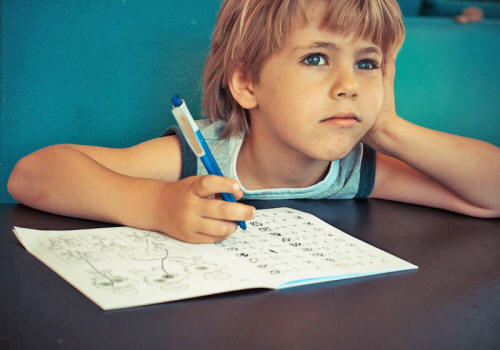|

by Carolanne Wright
September 09, 2016
from
Wakeup-World Website
Spanish version
Italian version

Viewed by academics as one of the most influential psychologists of
the 20th century, Jerome Kagan ranked above
Carl Jung (the founder of analytical psychology) and Ivan
Pavlov (who discovered the
Pavlovian reflex) in a 2002
American Psychological Association
ranking of the eminent psychologists.
He is well-known for his pioneering work
in developmental psychology at Harvard University, where he has
spent decades documenting how babies and small children grow, and is
an exceptional and highly-regarded researcher.
So it may be surprising to learn that he believes the diagnosis of
ADHD (attention deficit
hyperactivity disorder) is an invention - and only
benefits
the pharmaceutical industry and
psychiatrists.
Mislabeling
Mental Illness
"That is the history of humanity:
Those in authority believe they're doing the right thing, and
they harm those who have no power", says Jerome Kagan.
In an interview with Spiegel, Kagan
addressed the skyrocketing rates of ADHD in America, which he
attributes to,
"fuzzy diagnostic practices."
He illustrated his point with the
following example.
Say fifty years ago you have a 7-year-old who is bored in school and
exhibits disruptive behavior. Back then, he would be labeled as
lazy. But today, that same child is said to suffer from ADHD. That's
why we've seen such a dramatic increase in the disorder.
Every child who is having problems in school is sent to see a
pediatrician, who then claims it's ADHD and prescribes
Ritalin.
"In fact, 90 percent of these 5.4
million kids don't have an abnormal dopamine metabolism. The
problem is, if a drug is available to doctors, they'll make the
corresponding diagnosis," he said.
"We could get philosophical and ask ourselves:
'What does mental illness mean?'
If you do interviews with children
and adolescents aged 12 to 19, then 40 percent can be
categorized as anxious or depressed.
But if you take a closer look and
ask how many of them are seriously impaired by this, the number
shrinks to 8 percent. Describing every child who is depressed or
anxious as being mentally ill is ridiculous.
Adolescents are anxious, that's normal.
They don't know what college to go
to. Their boyfriend or girlfriend just stood them up. Being sad
or anxious is just as much a part of life as anger or sexual
frustration," Kagan told Spiegel.
What are the implications for the
millions of American children who are inaccurately diagnosed as
mentally ill?
Kagan believes it's devastating
because they think there is something fundamentally wrong with them.
He's not the only psychologist to raise
the alarm about this trend, but Kagan and others feel they're up
against,
"an enormously powerful alliance:
pharmaceutical companies that are making billions, and a
profession that is self-interested."
Kagan himself suffered from inner
restlessness and stuttering as a child, but his mother told him:
"There's nothing wrong with you.
Your mind is working faster than your tongue."
He thought at the time:
"Gee, that's great, I'm only
stuttering because I'm so smart."
If he had been born in the present era,
he most likely would have been classified as mentally ill.
ADHD isn't the only mental illness epidemic among children that
worries Kagan, depression is another. In 1987, about one in 400
American teenagers was using an antidepressant. By 2002, the numbers
leaped to one in 40.
He feels it's another overused
diagnosis, simply because the pills are available. Instead of
immediately resorting to pharmaceutical drugs, he thinks doctors
should take more time with the child to find out why they aren't as
cheerful, for instance.
At the very least, a few tests should be
carried out - and an EEG for certain, especially since studies have
shown that people who have heightened activity in the right frontal
lobe respond poorly to antidepressants.
Kagan remembers going into a textbook-type depression after a major
research project he was involved with failed. He had insomnia and
met all the other clinical criteria for depression.
But since he knew what the cause was, he
didn't seek professional help. After six months, the depression was
gone. Under normal circumstances, he would have been diagnosed as
mentally ill by a psychiatrist and put on medication.
But here lies an important distinction: when a life event overwhelms
us, it's common to fall into a depression for a while.
But there are those who have a genetic
vulnerability and experience chronic depression; they are mentally
ill. It's crucial to look not only at the symptoms, but the causes.
This is
where psychiatry drops the ball, as
it's the only medical profession that establishes illness on
symptoms alone. Such a blind spot opens the door for new maladies -
like
bipolar disorder, which we never
used to see in children.
As it stands today, nearly a million
Americans under the age of 19 are diagnosed with it.
"A group of doctors at Massachusetts
General Hospital just started calling kids who had temper
tantrums bipolar. They shouldn't have done that. But
the drug companies loved it
because drugs against bipolar disorders are expensive.
That's how the trend was started.
It's a little like in the 15th century, when
people started thinking someone could be possessed by the
devil or hexed by a witch," said Kagan.
When asked if there are alternatives to
pharmaceutical drugs for behavioral abnormalities, Kagan said
we could look at tutoring, as an
example, for kids diagnosed with ADHD.
After all, it's never the ones who are
doing well in school that are diagnosed, it's always the children
who are struggling.
Source
|


